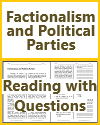If you don't have anything nice to say... |
|---|
 |
 |
|---|
If you don’t have anything nice to say, don’t say anything at all. Click here to print this famous proverb, quoted by generations of parents and teachers. |
|---|
|
Civility is imperative in classrooms and schools for a variety of reasons, as it fosters a positive and productive learning environment, supports social and emotional development, and prepares students for responsible citizenship. Here are some key reasons why civility is crucial in educational settings:
Positive Learning Environment: Civility creates a classroom and school environment characterized by respect, politeness, and consideration for others. Such an environment is conducive to learning, as students feel safe, comfortable, and valued. Effective Communication: Civility promotes effective communication among students, teachers, and staff. When students communicate respectfully and attentively, misunderstandings are reduced, and information is conveyed more clearly. Conflict Resolution: Civility equips students with the skills to resolve conflicts peacefully and constructively. Instead of resorting to aggression or hostility, students learn to engage in dialogue and find mutually agreeable solutions. Respect for Diversity: In diverse educational settings, civility encourages students to appreciate and respect differences in culture, background, and perspectives. It promotes an inclusive atmosphere where all students feel welcome. Bullying Prevention: A culture of civility helps prevent bullying and harassment. When students are taught to treat others with respect and kindness, incidents of bullying are less likely to occur. Emotional Well-being: Civility contributes to the emotional well-being of students. Being in a respectful and supportive environment reduces stress, anxiety, and the risk of emotional distress. Social and Emotional Learning: Teaching civility aligns with social and emotional learning (SEL) initiatives. SEL programs aim to develop students' emotional intelligence, self-awareness, self-regulation, and interpersonal skills, all of which are essential for success in school and life. Conflict-Free Learning: Civility minimizes disruptions and conflicts in the classroom, allowing teachers to focus more on instruction and less on managing disruptive behavior. Preparation for Citizenship: Education is not just about academic content; it also prepares students to be responsible and engaged citizens. Civility instills the values and behaviors necessary for active participation in democratic society. Professionalism: In the future, students will enter a wide range of professions. Civility helps students develop the professionalism needed for success in the workplace, where respectful communication and teamwork are highly valued. Role Modeling: Teachers and school staff serve as role models for students. By modeling civility, they demonstrate the importance of respectful behavior and set a positive example for students to follow. Community Building: Civility promotes a sense of community within schools. Students and staff form positive connections and work together to create a supportive and inclusive school culture. Conflict Prevention: When students are taught civility from an early age, they are more likely to avoid behaviors that lead to conflicts and disciplinary issues. Character Development: Civility is an integral component of character education. It helps shape students' character by emphasizing virtues such as respect, empathy, and kindness. Promotion of Learning Values: Civility reinforces values that are essential for the pursuit of knowledge, such as open-mindedness, curiosity, and a willingness to consider diverse viewpoints. Civility is imperative in classrooms and schools because it enhances the overall educational experience, contributes to students' well-being and character development, and prepares them for responsible citizenship in a diverse and interconnected world. It sets the foundation for a positive school culture where learning, personal growth, and respect for others thrive. |
 |
|---|













